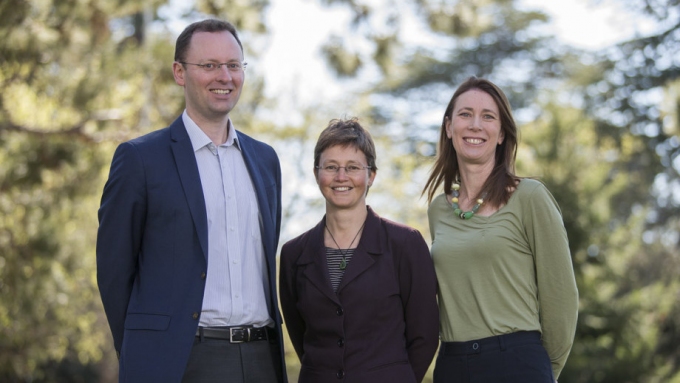Research into a new export industry to deliver cheap, clean energy for Australia and the region has received $10 million in funding as part of The Australian National University’s Grand Challenges program.
The Grand Challenge Scheme invests in transformative research to make the impossible possible. In its second year, the scheme seeks to bring new perspectives to the most pressing challenges facing society.
“This year’s Grand Challenge winning project - to deliver zero-carbon energy to Asia Pacific - is a blueprint for the prosperity of Australia, and our region,” ANU Vice-Chancellor Professor Brian Schmidt said.
“I’m really excited about this project because it will deliver exactly what the world needs at this juncture in our history: big thinking, practical solutions, and collaboration across research, industry and the community.”
The Zero-Carbon for Energy for the Asia-Pacific project will catalyse the development of a major renewable energy export industry from the ground up: building the infrastructure, exploring the trade relationships, developing the policy frameworks to get Australia’s abundant renewable energy resources cheaply and reliably to our Asia-Pacific neighbours.
It will be developed under two key themes, by exporting Australian renewable electricity, and the creation of renewable electricity capability in the Asia-Pacific and by the development of zero-carbon embedded energy products made using Australian renewable energy.
“Our Grand Challenges scheme tasks our immensely talented researchers to think of ways to tackle the toughest problems,” Professor Schmidt said.
“It is about going out and making a difference for our country and that’s our role as the national university” said ANU Vice-Chancellor Professor Brian Schmidt.
The winner was selected from four finalists which included projects that will aim to humanise machine intelligence, build positive social cohesion and conduct high-tech biodiversity rescues.
The winning team is led by Professor Ken Baldwin from the ANU Energy Change Institute, and includes Professor Kylie Catchpole, Dr Paul Burke and Dr Emma Aisbett.
For more information on the project, see the team talking about it in this video: https://youtu.be/IquWUm_-qaw

